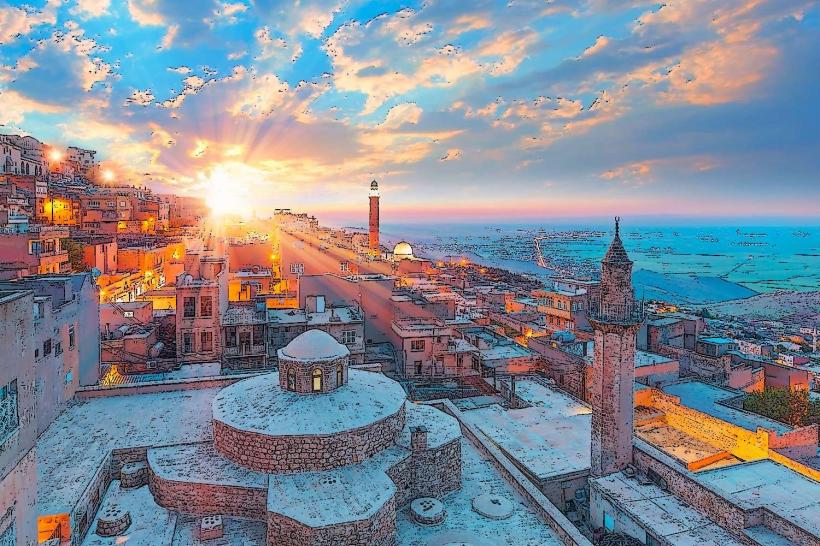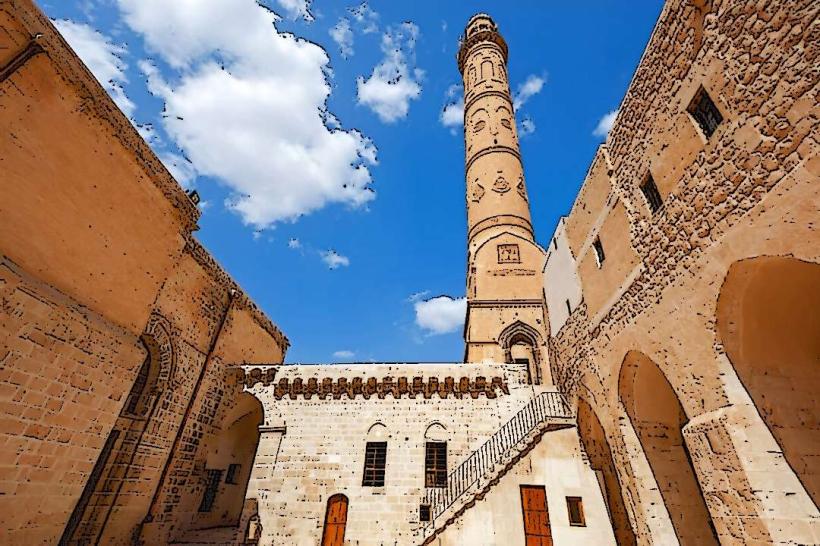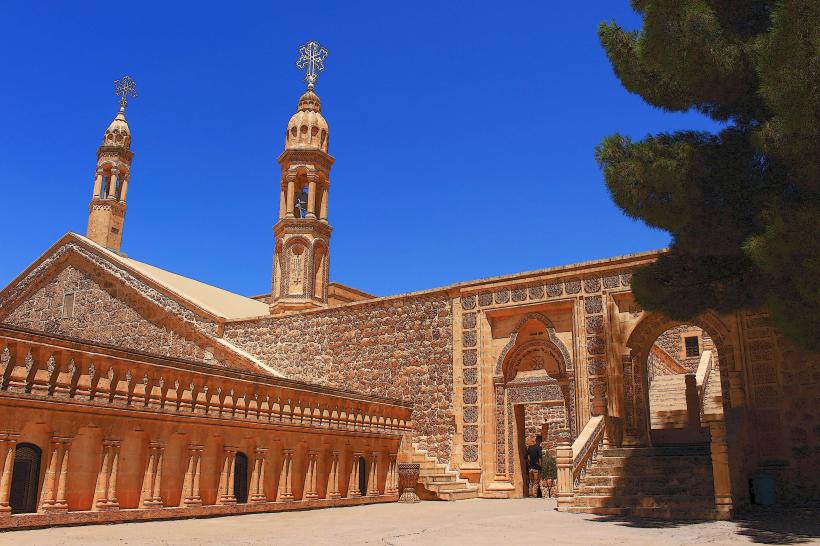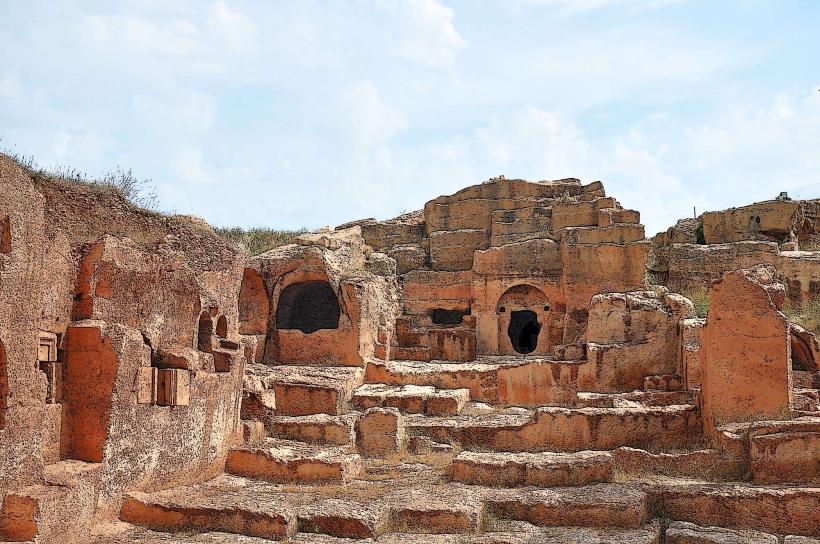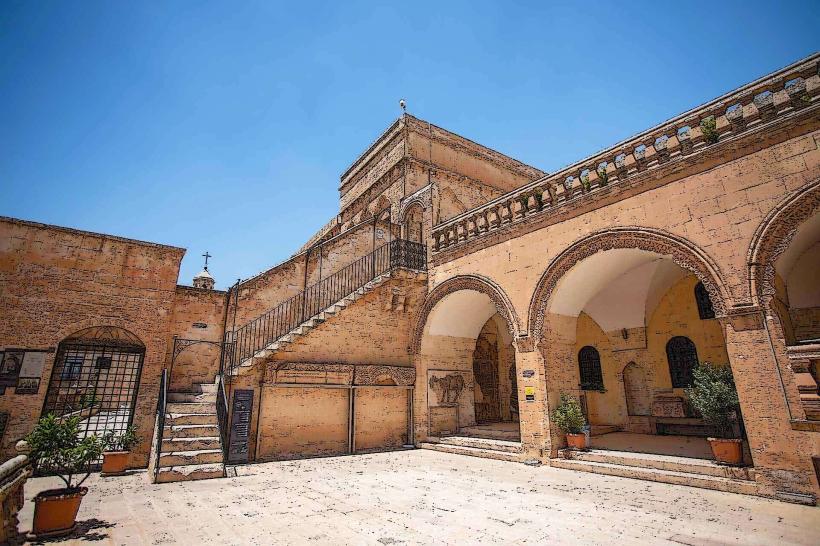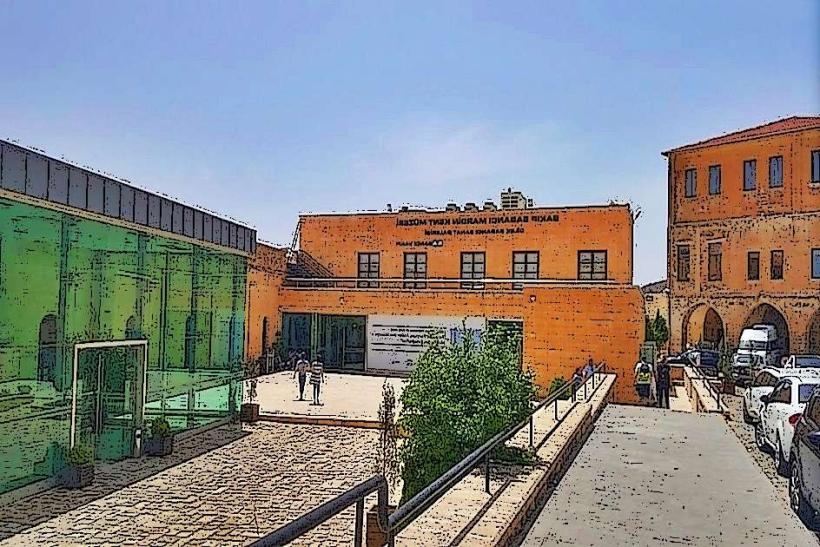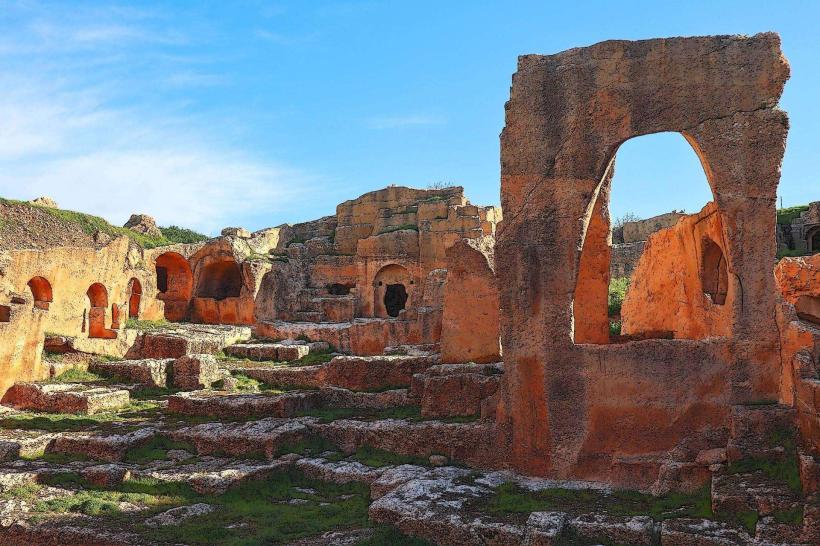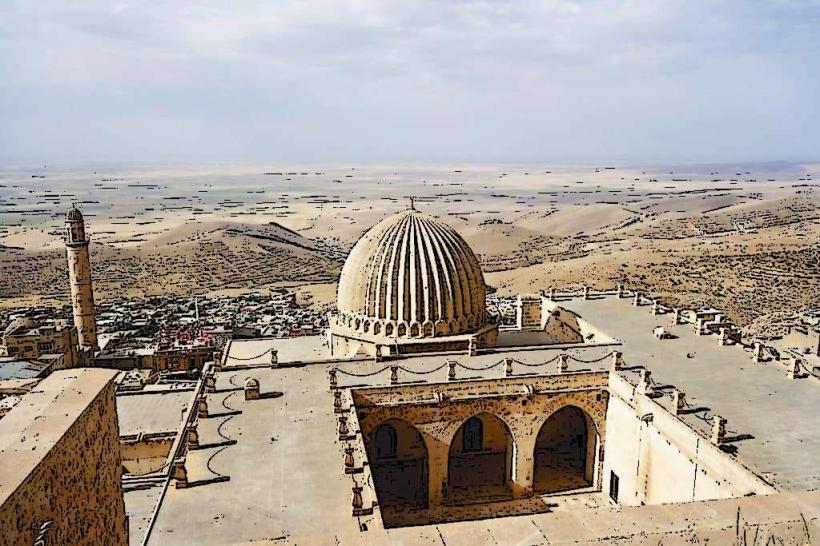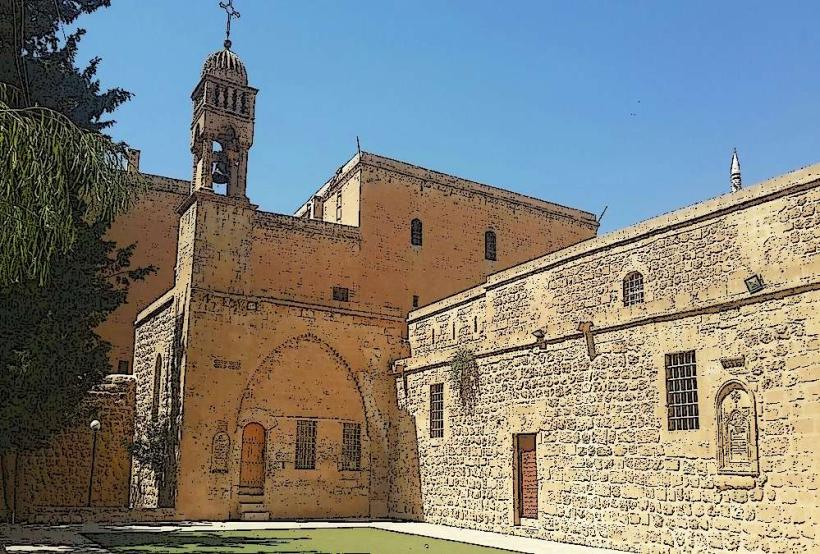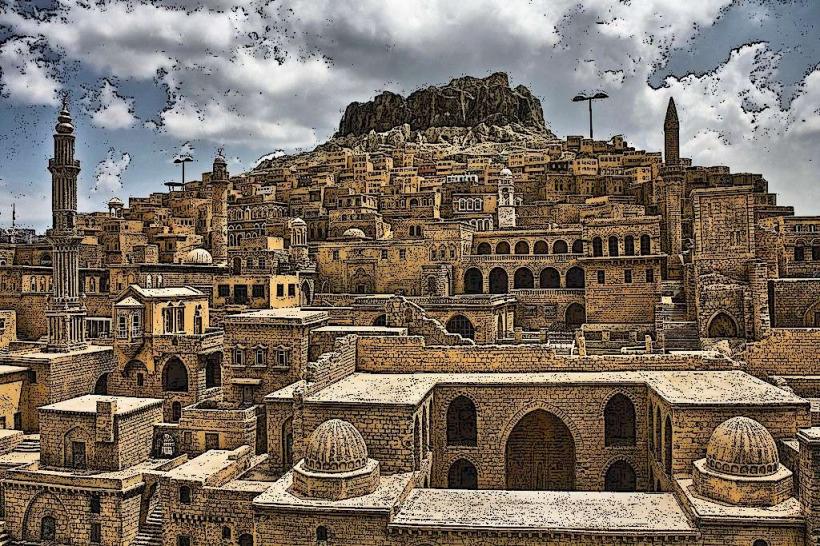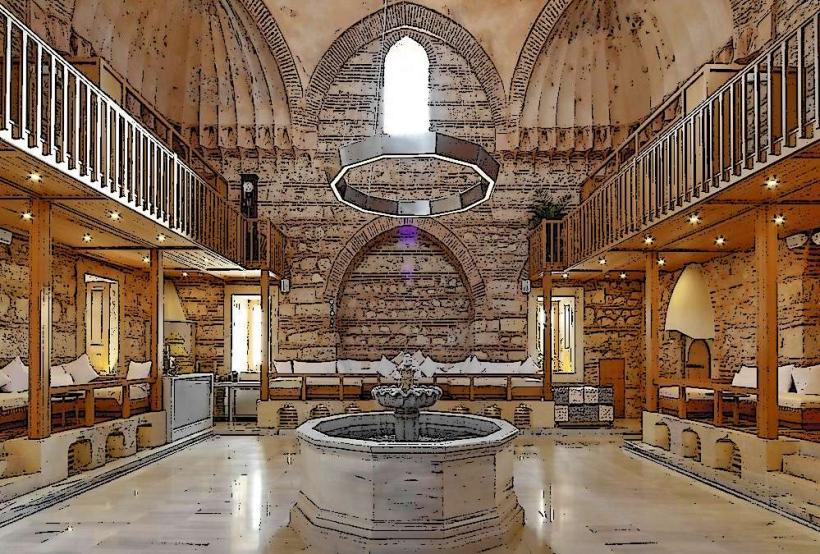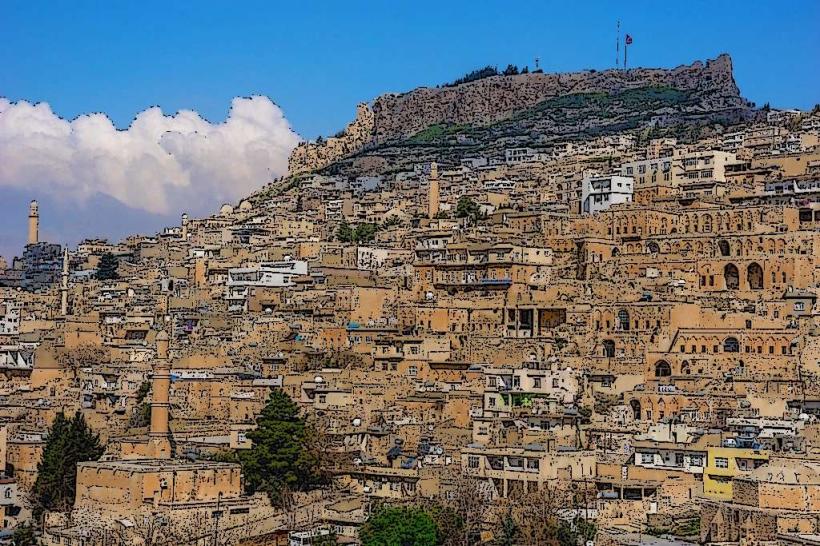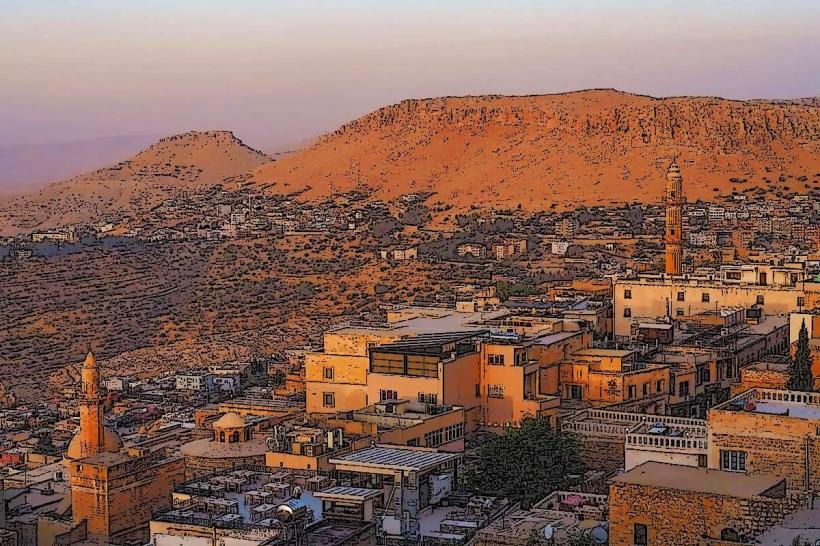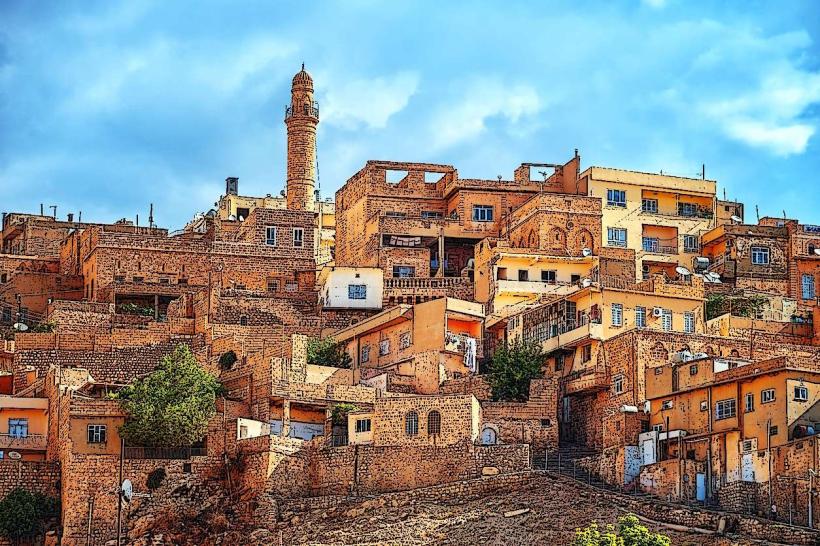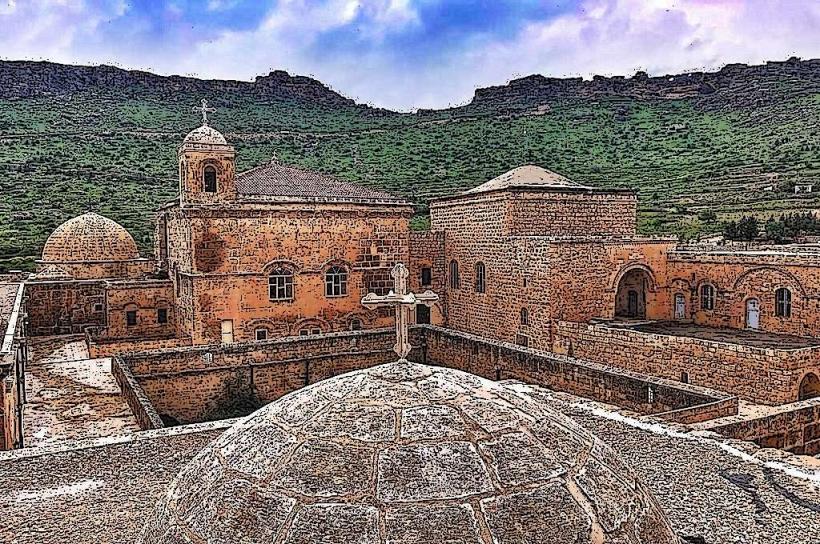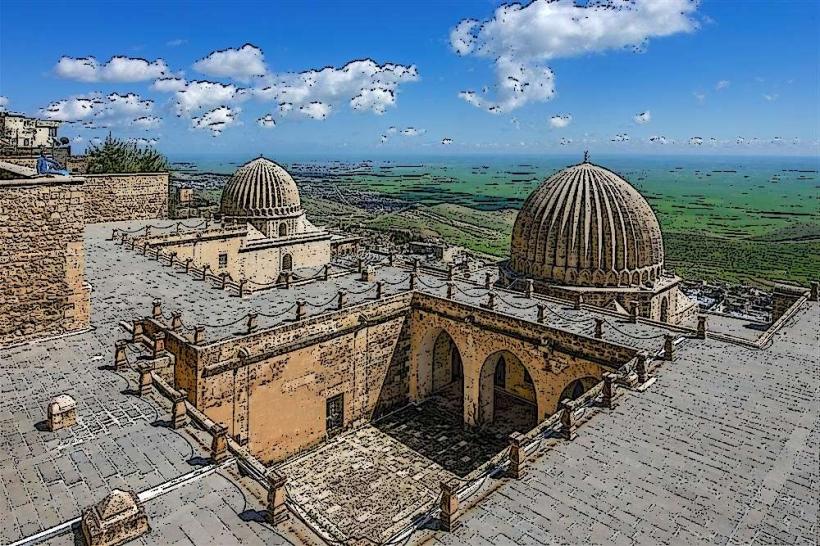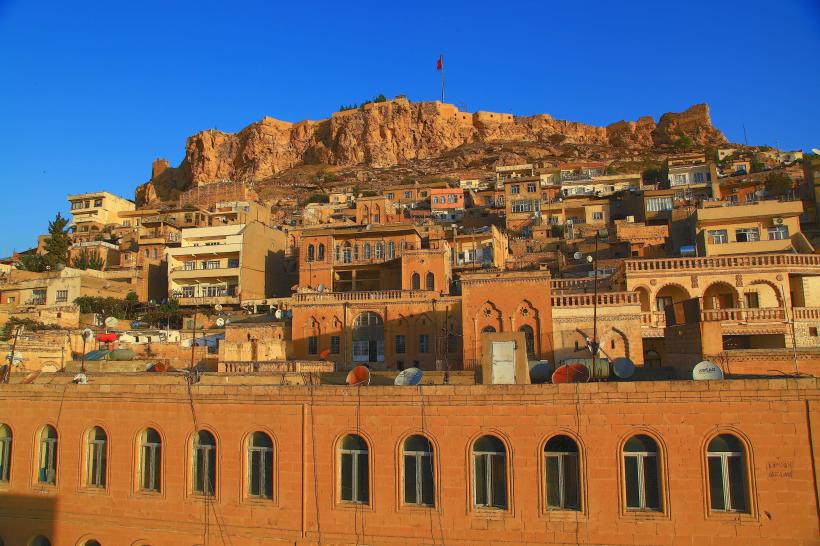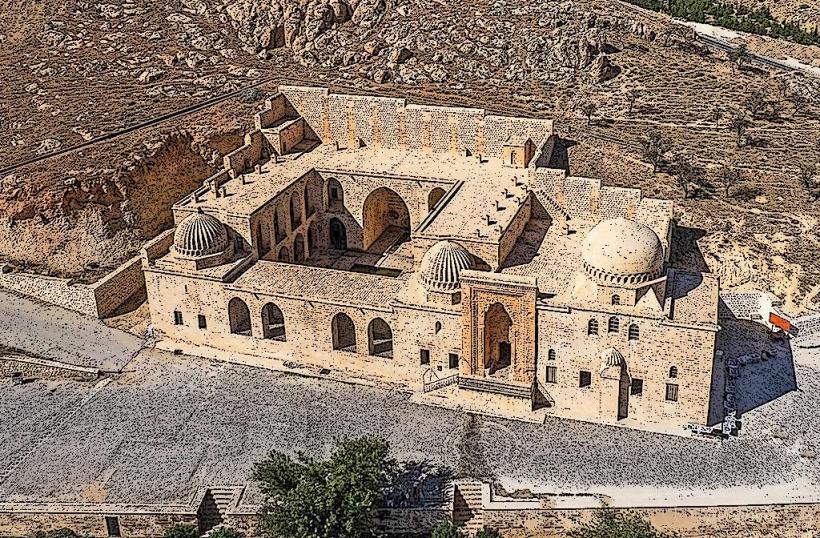Information
Landmark: Mor Hananyo MonasteryCity: Mardin
Country: Turkey
Continent: Asia
Mor Hananyo Monastery, Mardin, Turkey, Asia
Mor Hananyo Monastery is a historical Syriac Orthodox monastery situated in the vicinity of Mardin, Turkey.
It is recognized as one of the oldest functioning Syriac Orthodox monasteries globally.
Visual Characteristics
The monastery complex is constructed primarily from local limestone, exhibiting a pale ochre hue. It comprises several interconnected structures, including a church, residential cells, and a refectory. The architecture reflects Syriac Orthodox traditions, characterized by simple, robust stonework and arched doorways and windows. The main church features a barrel-vaulted ceiling and stone altars. The site is situated on a hillside, offering a commanding view of the surrounding plains.
Location & Access Logistics
Mor Hananyo Monastery is located approximately 18 kilometers southwest of Mardin city center. Access is via the D380 highway, turning onto a well-maintained asphalt road leading directly to the monastery. Ample parking is available on-site. Public transport options to the monastery are limited; private vehicles or taxis are the most practical means of access from Mardin.
Historical & Ecological Origin
The monastery's origins date back to the 4th century AD, with significant construction and expansion occurring in the 5th and 6th centuries. It was founded by Mor Hananyo, a disciple of Mor Ephrem the Syrian. The original purpose was to serve as a spiritual center and refuge for Syriac Orthodox monks. The site is geologically situated on a limestone plateau, a common geological formation in the region.
Key Highlights & Activities
Visitors can explore the main church, which contains ancient frescoes and inscriptions. The monastic cells and refectory offer insight into the historical monastic lifestyle. The monastery grounds provide vantage points for observing the landscape. Photography of the architectural elements and the surrounding scenery is permitted.
Infrastructure & Amenities
Restrooms are available for visitors. Limited shade is provided by the monastery's stone structures. Cell phone signal (4G) is generally available. There are no on-site food vendors; visitors should plan to bring provisions or dine in Mardin.
Best Time to Visit
The best time of day for photography is late afternoon, when the sunlight casts long shadows and illuminates the stone structures. The most favorable months for visiting are April to May and September to October, offering moderate temperatures. Summer months (June-August) can be very hot.
Facts & Legends
A notable historical detail is that the monastery served as the seat of the Syriac Orthodox Patriarchate for several centuries before its relocation. Local tradition suggests that the monastery's wells never run dry, even during prolonged droughts.
Nearby Landmarks
- Mardin Castle (5.2km Northeast)
- Great Mosque of Mardin (5.5km Northeast)
- Kasımiye Madrasah (5.8km Northeast)
- Deyrulzafaran Monastery (1.5km Southwest)

